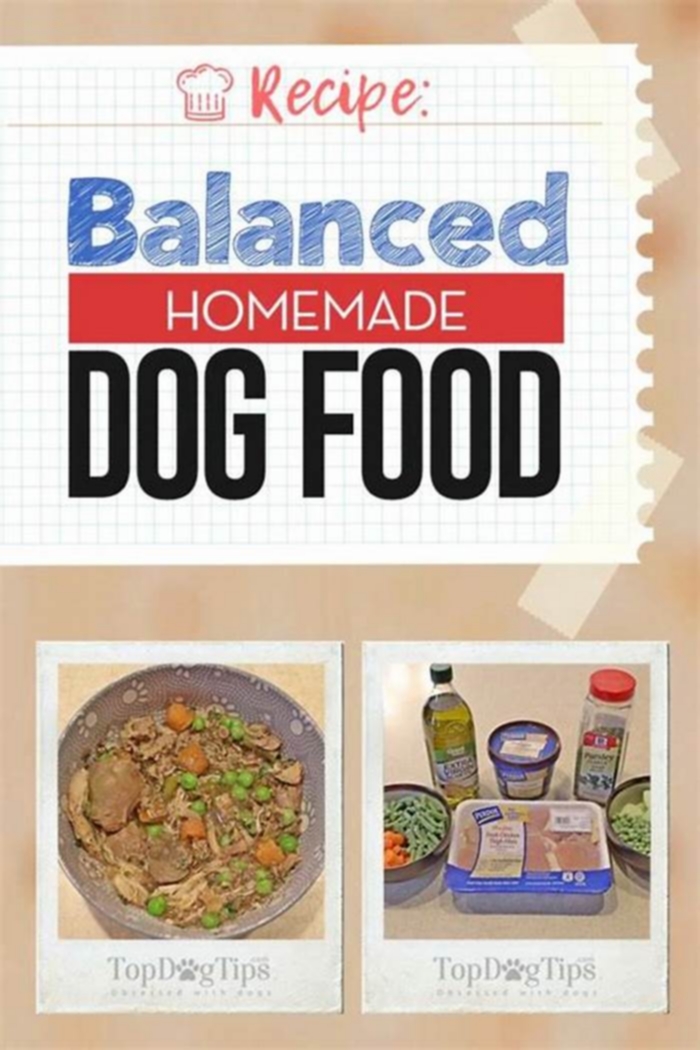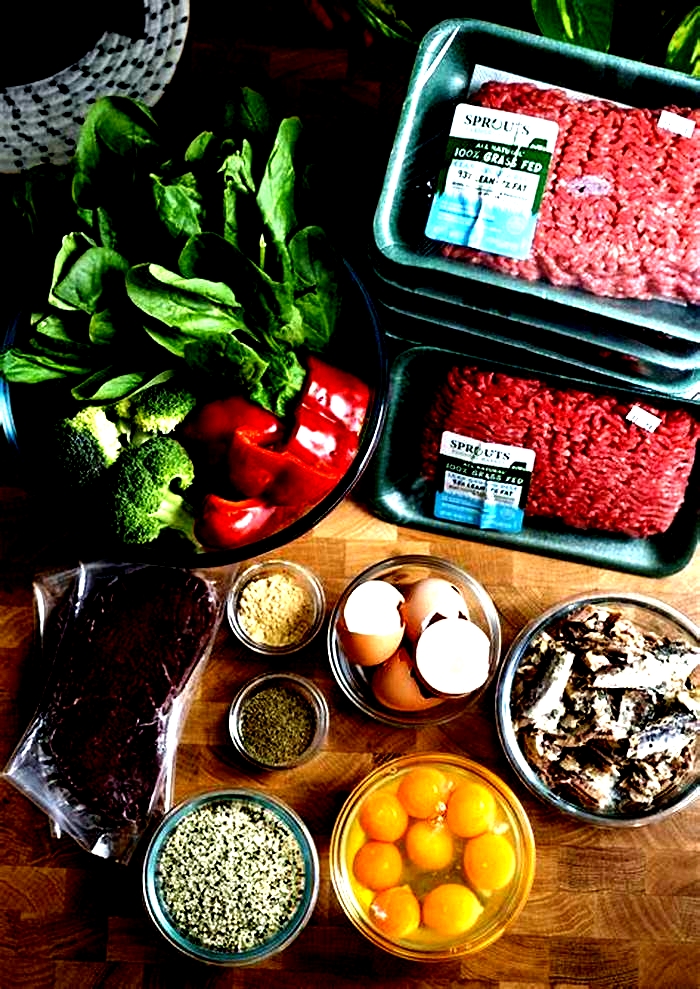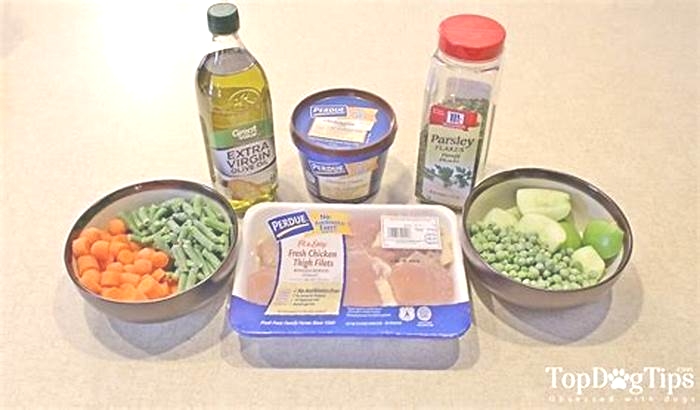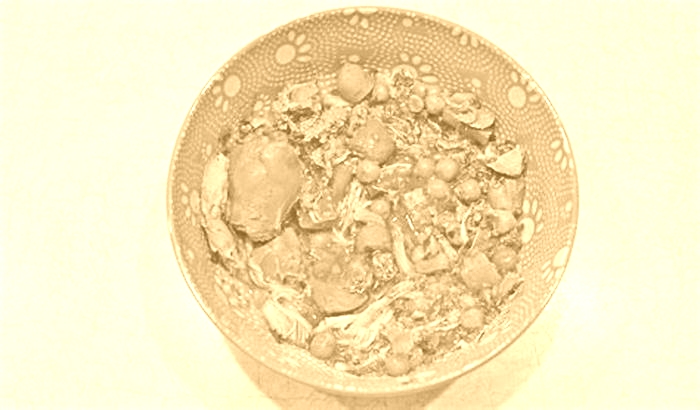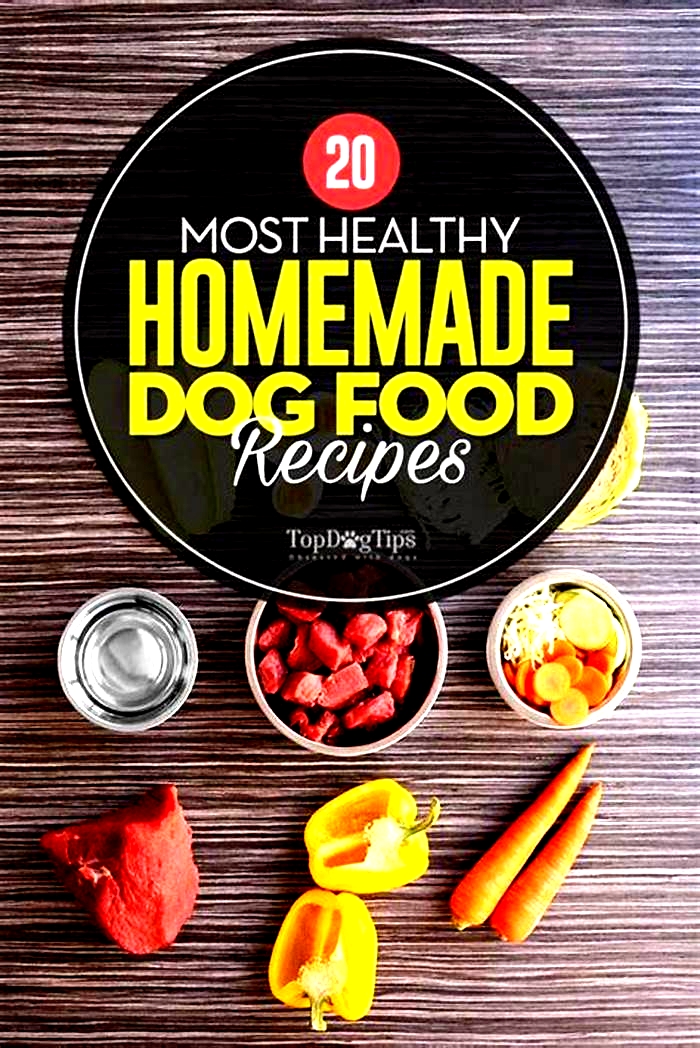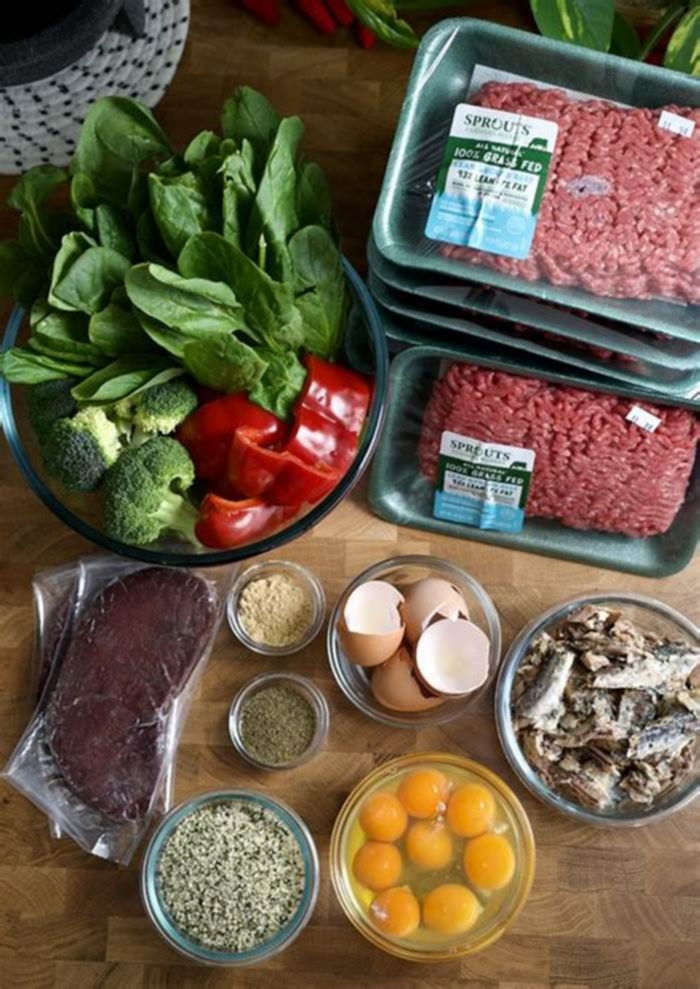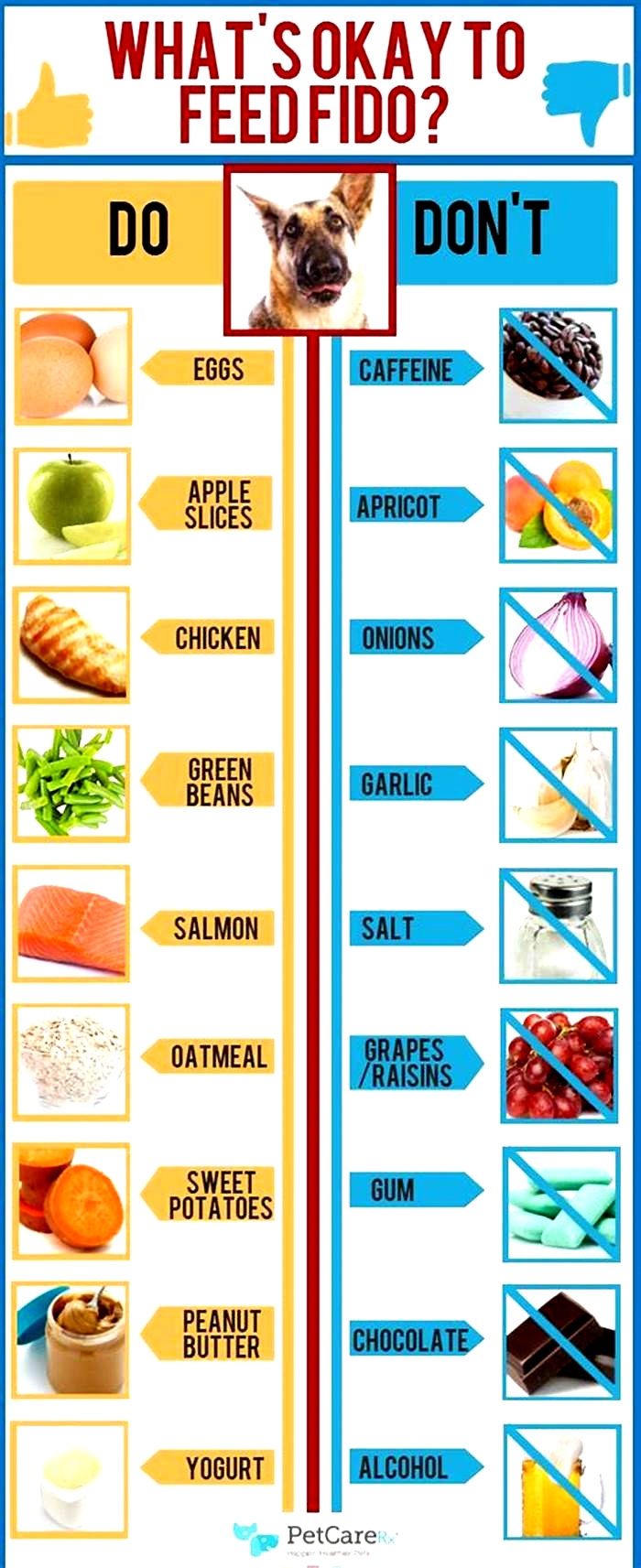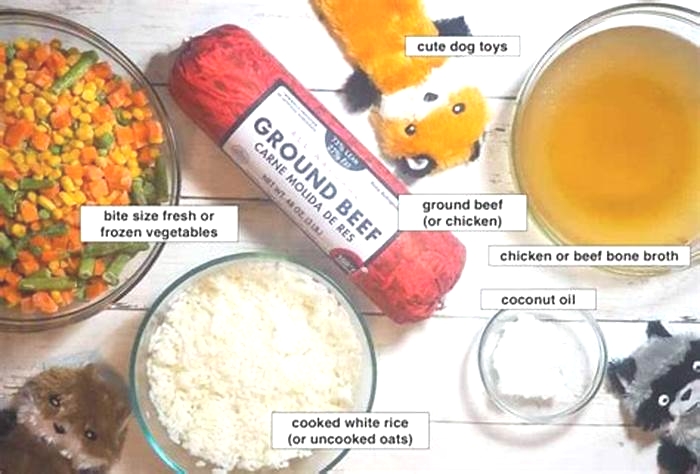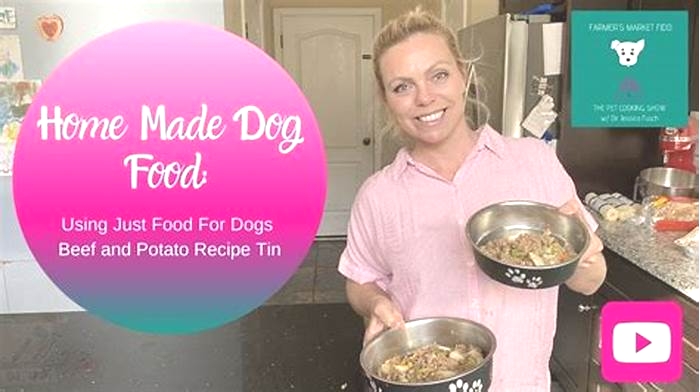how to make a balanced homemade dog food
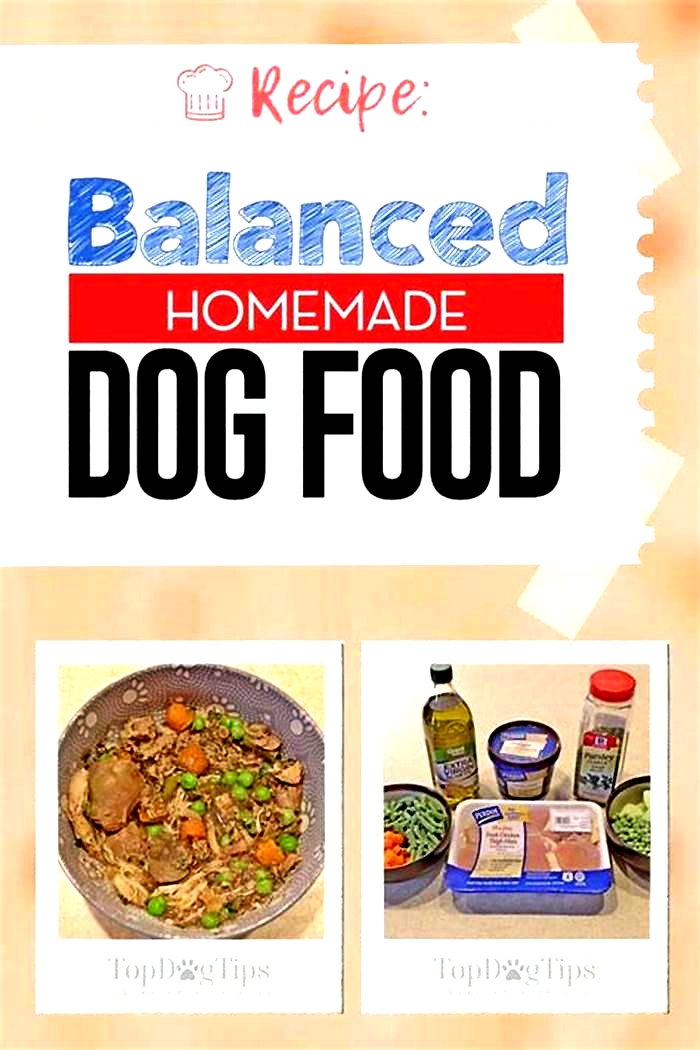
Homemade Dog Food Recipes: Choosing Balanced Ingredients
Are you considering switching your dog to a homemade diet? A good place to begin is by discussing it with your veterinarian and/or a veterinary nutritionist. You may think that sounds unnecessary when there are so many recipes for homecooked dog meals available on the internet. However, the experts say that many of those recipes were not reviewed by veterinary nutritionists to make sure they provide a nutritional, well-balanced diet for your dog. This is why some owners prefer to feed pre-made fresh food.
The American College of Veterinary Nutrition (ACVN) warns that your dogs unique nutritional requirements will depend on the age, size, health, and breed. Also, there are dogs for whom a homemade diet may not be appropriate or might even be damaging. We generally dont recommend homemade diets for a dog less than one-year-old. If young dogs dont receive the appropriate amount of calcium and phosphorus, significant bone abnormalities may result, says Dr. Jerry Klein, AKC chief veterinarian. Pregnant and lactating dogs also have unique dietary requirements that may not be addressed by a recipe found on the internet.


The ABCs of a Balanced Dog Food Diet
Understanding the basics of what makes a homecooked diet balanced for your dog will help when you discuss the options with an expert. Here are important ingredients for the canine diet.
Protein: According to the ACVN, dogs must have protein in their diets that contain 10 specific essential amino acids their bodies cant produce. This is necessary for the creation of glucose, which transforms into energy. Sources of protein include chicken and turkey, after removing bones, fat, and skin; beef and lamb; pork in limited amounts; salmon and some other fish such as whitefish, herring, walleye, flounder, and Arctic char.
Fats and fatty acids: The most concentrated sources of fats in a dogs diet come from animal fats and plant seed oils. A healthy diet supplies the fatty acids the dogs body doesnt manufacture. Fatty acids support the function and structure of cells, keep skin and coat healthy, and enhance the taste of the food. Sources of fatty acids include plant-based oils, including corn, soybean, canola, and flaxseed oil, as well as fish oil.
Carbohydrates: Dogs get some of their energy from carbohydrates, which include sugars, starches, and dietary fibers. Sources includerice, pasta, oatmeal, and quinoa.
Fiber: Dogs need fiber in their diet to keep their gastrointestinal (GI) system functioning and to help them from becoming overweight. Good sources of fiber for dogs include carrots, pumpkin, apples, dark leafy greens, brown rice, and flaxseed.
Vitamins: Vitamins are required for growth and maintenance. Vitamin deficiencies can cause a variety of health problems; however, they can also be dangerous in large quantities.
Vitamins dogs require include A (carrots, pumpkin), B vitamins (liver, green vegetables, whole grains), C (fruits and vegetables, organ meat), D (liver, fish, beef), E (leafy green vegetables, liver, bran, plant oils), K (fish, leafy green vegetables, fish), and choline (liver, fish, meats, egg yolks).
Minerals: There are 12 essential minerals for dogs:
- Calcium (tofu, green beans, broccoli, and cauliflower) and phosphorus (meat, eggs) for strong bones and teeth.
- Magnesium, potassium, sodium, and chloride (fruits, vegetables, whole grains) for nerve impulse transmission, muscle contraction, and cell signaling.
- Sulfur (meat, fish, molasses) for healthy skin, coat, and nails.
- Iron (red meats, poultry) for supporting red blood cells and the immune system.
- Iodine (dairy, kelp, seafood) for a healthy thyroid.
- Zinc (eggs, lamb, liver, brewers yeast) for the immune system, healthy skin, and coat.
- Selenium (meat, vegetables, seafood, brown rice) to boost the immune system.
- Copper (whole grains, seeds, and seafood) for healthy bone growth.
Water: We sometimes overlook this important ingredient of a healthy dogs diet, but there really is no dog food that contains enough water for your dog. Keep clean, fresh water out always.

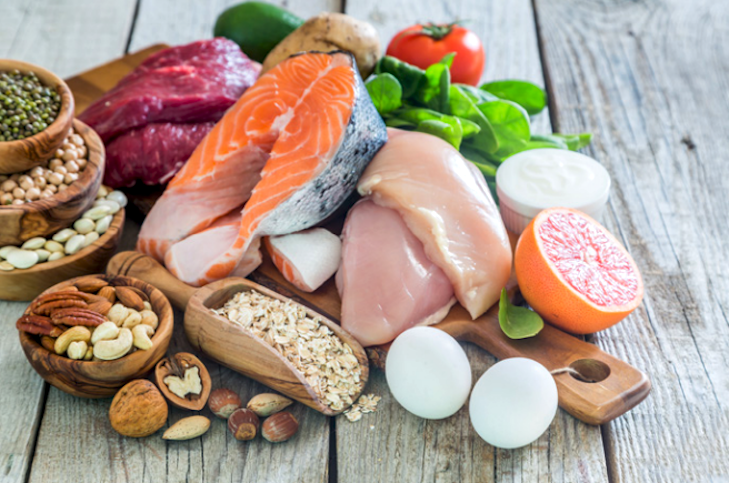
Making the Transition
Consult a veterinarian: If youve decided to transition your dog to a homemade diet, your first step should be to consult a veterinarian or veterinary nutritionist. Those experts will consider your dogs age, size, and health history and help you identify a high-quality recipe that is tailored to meet your dogs specific nutritional needs.
Buying ingredients: When you buy ingredients for your dogs homemade meals, you need to pay as much attention to the source, expiration dates, and labels as you do when you buy food for yourself.
Making the switch gradually: Whenever you change your dogs food, whether to a homemade diet or a new commercial food, a gradual switch is best to avoid upsetting your dogs GI system. For at least five-to-seven days, gradually mix in more and more of the new food with the old food, as you allow your dog to adjust to the change.
Follow the recipe: Be sure to follow the recipe. Tufts Cummings Veterinary Medical Center Clinical Nutrition Service published a study to determine how well owners adhered to homecooked diet recipes a median of one year later. Only 13 percent were still feeding the original nutritionally balanced diet recipe.
Clear instructions: Instructions about preparation and quantities are important. The way you cook the ingredients for example, steam, roast, or boil can impact the nutrition of the diet. Substituting or adding ingredients can also cause nutritional deficiencies. A study reported in the Journal of the American Veterinary Medical Association reported that a lack of clear instructions in many recipes forces pet owners to make assumptions that can result in food that is nutritionally inadequate and can even be harmful if fed to your dog on a long-term basis.
Follow-up:Once youve made the transition, pay attention to any digestive changes your dog may have. If his stool softens, he vomits, or has diarrhea, check in with the veterinarian. Whenever you change your dogs diet, you also need to monitor his weight. It may take a while to determine the correct portions for his size, age, and energy level.
Resources for the Chef
- Your best resource and first stop is your dogs veterinarian, who knows your dog and has a thorough understanding of his health history and current condition.
- A good resource to help find a veterinary nutritionist for a homemade diet consultation is the Diplomate directory at www.acvn.org. If there isnt a nutritionist in your area, you can consult with one remotely.
- An alternative option is to use the online consulting service called BalanceIT, a site operated by a veterinary nutritionist to formulate a basic, nutritionally balanced recipe.
- Another site that provides answers to your questions is: Ask the Nutritionist
- ChefPaw is the latest way to provide your pup with nutritious and delicious meals, giving you a more efficient way to prepare homemade dog food. VisitChefPaw.comto learn more
ChefPaw by Innovet Pet Products is helping you take full control of your dogs diet with the first countertop Dog Food Maker of its kind. Striving to save you time and money while maximizing your dogs nutrition, ChefPaw can make fresh, homemade food for your dog in 40 minutes. At ChefPaw, your pets happiness and well-being take center stage.
13 Balanced Homemade Dog Food Recipes
Are you planning to switch your dog's diet to homemade dog food? That's great because in this blog, we'll provide balanced homemade dog food recipes.
Cooking for your dogs, when done right, can be very advantageous for the pet's health. With our many recipes here, there's always something new for you and your pup to try.
However, not all homemade dog food recipes will fit every dog (most won't), and more importantly, a pet owner must pay attention to the nutritional value of each dish.
Balanced homemade dog food recipes are usually the closest to a healthy doggy meal but still require a vet's assessment.

Balanced Homemade Dog Food Recipe: Essential Ingredients
Balance refers to the type and amount of nutrients. Studies have found that prolonged feeding of unbalanced meals exposes a dog to many health risks, and many recipes do not provide enough nutrition for the canine.
A dog's balanced diet will contain a sufficient amount of:
Fatty Acids
There are good fats, and no, I am not kidding! Take a look at Omega-3 Fatty Acids.Fatty acids support the function and structure of cells. It can maintain the health of thedog's skin and coat. Fatty acids can be found in fish oils such as salmon, mackerel, andnetting.
You can add these omega-3s as fish oils or flaxseed oil. Mix it into theirhomemade dog food meals.
Protein
Another essential nutrient is Protein. Proteins are crucial for the growth and regeneration of animal tissues. It also helps by providing amino acids to build hair, skin, nails, muscles, tendons, ligaments, and cartilage.
Lack of Protein can result in weight loss, muscle loss, poor digestion, and weakness in dogs.
Vitamins
The right vitamins can help and are required for normal physiological functions. That includes growth, body development, reproduction, and maintaining your dog's health.
However, consult your vet first to know the correct vitamins your pup needs. Also, vitamins can be dangerous if given in large quantities.
Carbohydrates
Furthermore, dogs also need carbohydrates in their daily diet, as they can provide reliable energy, which includes sugars, starches, and dietary fibers.
Carbohydrates can be found in rice, pasta, oatmeal, and quinoa.
Fiber
Fiber, on the other hand, is a great resource for a dog's digestive tract. It helps your dog's digestive system move, reducing the chances of developing diarrhea or colon cancer.
Dietary fiber also breaks down into short-chain fatty acids that provide vital functions for maintaining your dog's health.
Minerals
Plenty of needed minerals for your dog to be in top-notch shape. Dogs need calcium and phosphorus to strengthen their bones and teeth.
Magnesium, potassium, sodium, and chloride help with nerve impulse transmission, muscle contraction, and cell signaling.
Sulfur in meat and fish can maintain your dog's skin, coat, and nails.
Iron supports their immune system and red blood cells.
Other minerals needed include iodine, zinc, selenium, and copper.
The Importance of a Balanced Homemade Dog Food Recipe
Do not assume that a recipe that looks nutritious to you will be healthy for your dog.
There are severaldangers of feeding homemade meals when pet owners provide something that hasn't been discussed with a vet and specifically adjusted for the dog.
Balanced homemade dog food recipes are often structured to provide key nutrients (canines need about 50 different nutrients in their diet).
When adjusted for your dog, you can use these recipes for longer instead of others that may not contain even half of the essential nutrition.
No completely balanced homemade dog food recipe willbe perfect for every dog.
You cannot add all essential nutrients without significantly increasing caloric content. Generally, you cannot avoid homemade dog food supplementsto ensure the pet gets all the vitamins, minerals, and macronutrients.
Packaging it all into a dog food meal is nearly impossible without making it very calorie-dense.
If you're about to start cooking for your Fido, to make your job easier, here are 13 balanced homemade dog food recipes that come close to being well-rounded and varied in their nutrient profile.
They're a good foundation to start with, but remember that you should NOT switch your dog to a regular homemade dog food diet without consulting a veterinarian.
Every dog is different and requires a specifically adjusted diet for homemade meals.

Meat Mix Balanced Homemade Dog Food Recipe
1. Stew Surprise
Ingredients:
- 2 lbs. boneless chicken (chopped)
- 1 lb. ground beef
- 1 cup rolled oats
- 12 oz. of the vegetable mix (chopped) (Your choice. This is where the surprise comes in.)
Directions:
- Add chicken and enough water to cover it in a pot. Bring to a boil.
- Cover and simmer for 40 minutes.
- Add beef, oats, and veggies and simmer for 5 minutes.
Beef Balanced Homemade Dog Food Recipes
2. Beef Stew
Ingredients:
- 1 lb. beef stew meat
- 1sm potato (chopped, skinless)
- 1 small sweet potato (chopped, skinless)
- cup carrots, chopped
- c water
- cup white flour
- 1 tbsp. canola or olive oil
Directions:
- Preheat oven to 350.
- Bake vegetables in the oven for 10 minutes.
- Saut beef with oil until cooked. Remove the beef.
- Add water and flour slowly into the pan. Stir until thick.
- Add beef, carrots, and potatoes.
- Cook for 10 more minutes.
3. Meatloaf
Ingredients:
- 3 cups of ground beef
- 2 whole eggs (with shells)
- cup finely chopped celery
- c finely chopped carrots
- cup cottage cheese
- cup rolled oats
Directions:
- Preheat the oven to 350.
- Thoroughly mix all ingredients in a bowl.
- Place into loaf pan and bake for 35 to 40 minutes.
SIMILAR RECIPE: Simple & Healthy Doggy Meatloaf Recipe


Pork Balanced Homemade Dog Food Recipes
4. Tasty Crockpot Pork
Ingredients:
- 2 pounds of pork (deboned and chopped)
- 2cups asparagus (chopped)
- 2 cups beetroot (chopped)
- 2 cups white potatoes (chopped)
- 1 tbsp. olive oil
- 1 tbsp. ground flaxseed
- 1cup water
- tsp rosemary
- tsp clove
- tsp basil
Directions:
- Put all ingredients in a crockpot.
- Cook on low for 4 hours.
5. Fruity Pork Dinner
Ingredients:
- 4 lbs. ground pork
- 1 large sweet potato (chopped)
- 1 large apple (cored and chopped)
- 2 carrots (chopped)
- 1 cup kale (chopped)
- cup blueberries (fresh or frozen)
- 1 cup rice
- 1 cup water
Directions:
- Add meat, fruits, vegetables, and water to the crockpot.
- Cook on low for 4 hours.
- Cook rice with directions for your rice pot.
- Mix ingredients together.
ALSO READ:20 Most Healthy Homemade Dog Food Recipes

Chicken Balanced Homemade Dog Food Recipes
6. Chicken and Rice Dinner
Ingredients:
- pound of cooked, skinless chicken (boneless)
- 1 cup of cooked brown rice
- cup of broccoli (chopped)
- cup of peas
- 1 tablespoon of vegetable oil
Directions:
- Sautee vegetables with oil until soft.
- Mix ingredients together.
SIMILAR RECIPE:Chicken & Rice Cakes for Dogs with Upset Stomach
7. Chicken Crockpot Medley
Ingredients:
- 3 lbs. boneless skinless chicken
- 1 sweet potato (cubed)
- 2carrots (sliced)
- 2 cups frozen green beans
- 2 cups frozen peas
- 1 medium apple (cored and cubed)
- 1 can of kidney beans, drained and rinsed
- 2 tbsps. olive oil
Directions:
- Place meat in a crockpot and add water to cover the chicken.
- Add potato, carrots, kidney beans, green beans, and apple.
- Cook on low for 8 hours.
- Add frozen peas and cook for 30 minutes.
- Drain, add oil, and mash ingredients.

Turkey Balanced Homemade Dog Food Recipes
8. Skillet Turkey Yum
Ingredients:
- 8 oz. ground turkey
- 6 oz. peeled potatoes (diced)
- 2 oz. nonfat yogurt
- 7 oz. vegetables (your choice, small bites)
- 1 egg (with shells)
- 1 oz. flaxseeds
- 2 oz. instant oatmeal
- 8 oz. water
Directions:
- In a large saut pan, add water, potatoes, vegetables, and turkey.
- Cook on medium for approximately 20 minutes. Stir occasionally.
- Add egg and oatmeal and cook an additional 3 minutes. Stir frequently.
- Remove from heat. Add yogurt and flaxseeds.
9. Turkey Casserole
Ingredients:
- 3 lbs. ground turkey
- 1 cups brown rice
- 1 tbsp. olive oil
- 3 cups baby spinach, chopped
- 2 carrots, shredded
- 1 zucchini, shredded
- cup peas, canned or frozen
Directions:
- Cook rice according to your cooker's instructions.
- Heat olive oil in a large stockpot with medium heat.
- Add ground turkey and cook until browned.
- Stir in spinach, carrots, zucchini, peas, and brown rice.
- Cook for 5 minutes.
SIMILAR RECIPE:Turkey and Vegetable Homemade Dog Food Recipe

Fish Balanced Homemade Dog Food Recipes
10. Breaded Salmon
Ingredients:
- 1 cups brown rice
- 16 oz. frozen green peas
- 2 Carrots (shredded)
- 75 oz. canned salmon (packed in oil)
- 2 tbsps. flax seed
- cup whole wheat bread crumbs
- 1 tbsp. chives (chopped)
Directions:
- Cook rice according to package directions or cooker directions.
- Mix all ingredients.
- It may be mashed if desired.
11. Baked Fish and More
Ingredients:
- 2 cod fish fillets
- sweet potato (peeled and cubed)
- cup of ground sesame seed
- cup ground parsley
- 4 tsp sunflower oil
- Water
Directions:
- Preheat oven to 350.
- Boil potatoes in water until tender.
- Put potatoes and cod in a baking pan. Place sunflower on top.
- Bake for 35 minutes. Let cool for 30 minutes.
- Place parsley and sesame seed on top of the dish.
SIMILAR RECIPE:Vet-Recommended Homemade Dog Food Recipe
Meatless Balanced Homemade Dog Food Recipes
12. Peanut Buttered Sweet Potatoes
Ingredients:
- 3 sweet potatoes (cubed)
- 3 cups peanut butter
- 6 cups water
- cup brown rice
- cup quinoa
- 1 cup lentils
- 1 cup apple cider vinegar
- cup cranberry juice
- cup flaxseed oil
Directions:
- Bring the water to a boil. Add the rice, quinoa, lentils, and sweet potatoes.
- Reduce heat to low. Simmer for 45 minutes or until soft. Stir occasionally.
- Remove from the heat and mash.
- Add the peanut butter, vinegar, cranberry juice, and flaxseed oil. Stir.
13. Salad Bowl Whip-up
Ingredients:
- 1 cup black beans (cooked)
- 1 cup quinoa (cooked)
- cup squash (chopped)
- cup spinach (chopped)
- cup zucchini (chopped)
- cup apples (cored and chopped)
- cup pears (cored and chopped)
- cup yogurt
- 2 tbsp. cream cheese
Directions:
- Mix ingredients in a large salad bowl.
These balanced homemade dog food recipes are just a few meals you can create for your canine.
If you keep a variety of these recipes in your pet's weekly diet and use the right serving size for each meal, you're likely to hit all the essential nutrient requirements of your dog.
However, even for the most well-balanced homemade dog food recipes, you must consult a veterinarian or canine nutritionist to ensure yourcanine will get everything from these meals.
Include any essential dog supplements if and as needed.
READ NEXT:50 Best Homemade Dog Food Recipes
Common Questions about Homemade Slow Cooker Dog Food
We've answered some of the most common questions below for those wanting to know more about slow cooker dog food before trying the above recipes.
What Are the Best Ingredients for Homemade Dog Food?
Your ideal crockpot dog food meals will depend on your dog's diet and preferences. Some dogs prefer ground beef, while others like chicken. No matter what food you include, do your best to ensure that it is fresh.
Look at other dog food recipe ideas for inspiration on creative carbs and proteins.
You can find a range of unique and delicious ingredients for your dog's diet, including butternut squash, chicken breasts or chicken thighs, lean beef, and other items even a picky eater will love.
Is It Cheaper to Make Your Own Dog Food?
Whether or not it is cheaper to make your dog food depends on the dry food you typically buy and the ingredients you get.
You can save money making homemade dog food, especially if you make it in bulk and store it in an airtight container.
Buying meat like ground chicken on sale and freezing it in batches can also reduce your costs. Just be sure to also account for the cost of your time, especially if you have a busy household or many dogs.
Is Homemade Dog Food Better?
Homemade crockpot dog food can be better, but that is not always true. You will have to put more effort into choosing ingredients and ensuring the food is balanced.
You may need to talk to your own veterinarian and look at various food recipe ideas for your furry best friend to meet his nutritional needs.
That said, homemade dog food can be better, especially if your pup is on a restricted diet or has allergies.
Balanced Homemade Dog Food Recipes: Summary
 If you plan to make homemade dog food, we have the best balanced homemade dog food recipes for you. A dog's meal should be balanced and properly prepared so your pup can maintain health and enjoy the food much better. There are plenty of advantages to switching to homemade dog food. One prominent example is that you have complete control over what your pup eats.
If you plan to make homemade dog food, we have the best balanced homemade dog food recipes for you. A dog's meal should be balanced and properly prepared so your pup can maintain health and enjoy the food much better. There are plenty of advantages to switching to homemade dog food. One prominent example is that you have complete control over what your pup eats.
You have control over the correct nutrients and ingredients that they need.
However, conducting thorough research and following reliable recipes or guidelines is crucial to ensure the homemade diet is nutritionally complete and balanced.
Improperly balanced homemade diets can lead to nutrient deficiencies or excesses, which can have negative health consequences for your dog.
Consult with your vet or a pet nutritionist first. They'll know what your pup needs.


